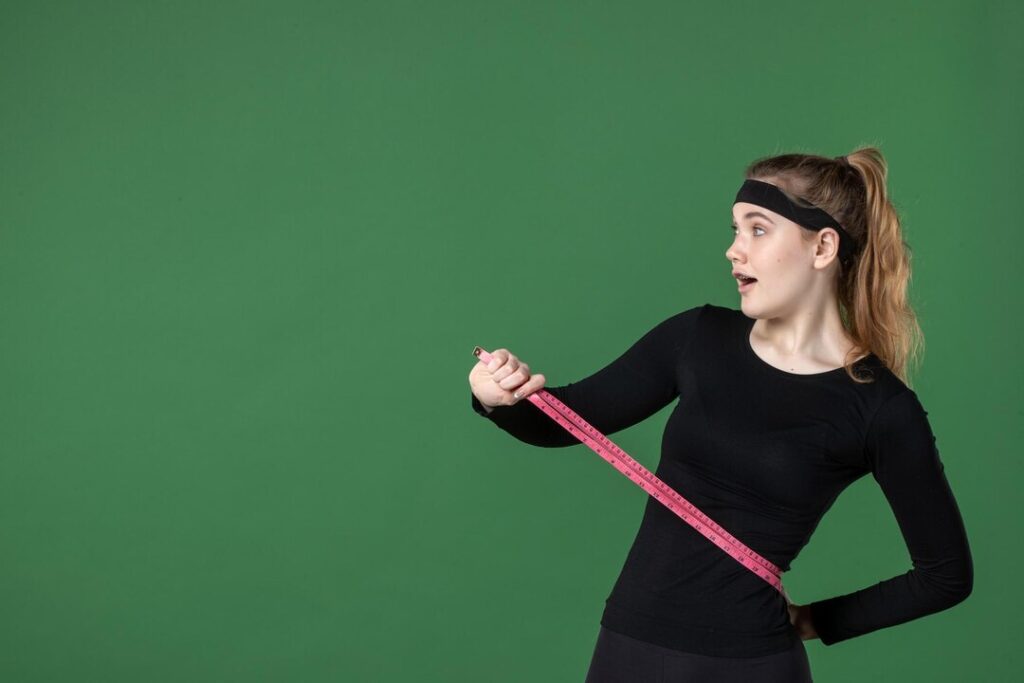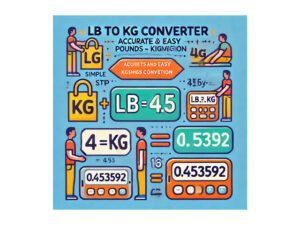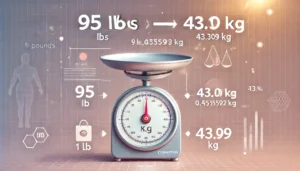Introduction
If you’ve ever wondered how much 130kg is in pounds, you’re not alone. Many people need to convert weight for fitness tracking, travel, or just curiosity. Whether you’re lifting weights, checking airline baggage limits, or following a diet plan, knowing how to convert kilograms (kg) to pounds (lbs) is essential.
In this blog post, we’ll walk you through a simple and quick way to convert 130kg to lbs, explain why weight conversions are useful, and answer some common questions. Let’s dive in!
130kg to lbs – The Quick Answer
The conversion formula for kilograms to pounds is: 1 kg=2.20462 lbs1 \text{ kg} = 2.20462 \text{ lbs}1 kg=2.20462 lbs
So, for 130 kg: 130×2.20462=286.6 lbs130 \times 2.20462 = 286.6 \text{ lbs}130×2.20462=286.6 lbs
Thus, 130kg is approximately 286.6 pounds.
Why Convert Kilograms to Pounds?
Understanding weight conversions can be useful in several everyday situations:
1. Fitness & Bodybuilding
- Many gym weights are labeled in pounds, but body weight measurements often use kilograms.
- Athletes and bodybuilders track their weight in both units depending on the country.
2. Travel & Luggage Limits
- Airlines set baggage weight restrictions in both kg and lbs, depending on the country.
- Knowing both values can help you pack efficiently.
3. Health & Medical Reasons
- Some medical professionals use kg, while others use lbs for weight monitoring.
- If you’re following a diet plan or weight loss program, tracking weight in both units can be helpful.
4. Everyday Conversations
- If you’re moving between countries (e.g., from the U.S. to Europe), knowing the conversion can be handy in everyday discussions.
How to Convert 130kg to lbs Manually
If you don’t have a calculator handy, you can use a simple approximation method:
- Double the kilograms → 130 × 2 = 260
- Add 10% of that value → 260 + 26 = 286
So, the estimated value is around 286 lbs, which is very close to the exact conversion (286.6 lbs).
This trick is a quick way to get an accurate answer without complex calculations.
Kilograms to Pounds Conversion Chart
Here’s a quick reference guide for converting other common weights:
| Kilograms (kg) | Pounds (lbs) |
|---|---|
| 50 kg | 110.2 lbs |
| 75 kg | 165.3 lbs |
| 100 kg | 220.5 lbs |
| 130 kg | 286.6 lbs |
| 150 kg | 330.7 lbs |
| 200 kg | 440.9 lbs |
This chart helps if you need to convert weights frequently.
Tools for Quick Conversion
If you don’t want to calculate manually, here are some useful tools:
- Google Search: Simply type “130kg to lbs” in Google, and it will provide the exact answer.
- Smartphone Apps: Apps like Google Assistant, Siri, and online converters can do the math instantly.
- Weight Conversion Calculators: Many fitness apps and medical sites offer easy conversion tools.
FAQs About Kilograms and Pounds
1. What is 130kg in lbs and ounces?
130 kg is 286 lbs and 9.6 ounces. Since 1 pound = 16 ounces, the decimal part (0.6) is converted by multiplying 16 × 0.6 ≈ 9.6 ounces.
2. Is 130kg considered overweight?
It depends on height and body composition. For a taller individual or an athlete with high muscle mass, 130kg might be healthy. However, for an average person, it could indicate overweight or obesity based on BMI (Body Mass Index).
3. How do I quickly estimate kg to lbs without a calculator?
A simple trick is:
- Double the kg value and add 10% of that value.
- Example: 130 kg → 130 × 2 = 260, then 260 + 26 = 286 lbs (approximate).
4. Why do some countries use kg while others use lbs?
Kilograms are part of the metric system, widely used in most countries. Pounds belong to the imperial system, primarily used in the U.S., Liberia, and Myanmar.
5. Can I round the conversion number?
Yes! For most practical purposes, you can round 1 kg = 2.2 lbs. That means 130 kg ≈ 286 lbs.
Conclusion
Now you know that 130kg to lbs, along with why weight conversion matters and how to do it quickly. Whether you’re tracking fitness goals, packing for a trip, or just curious, this knowledge comes in handy.
If you found this guide useful, share it with others who might need quick weight conversions. Stay informed, and happy calculating! 🚀





